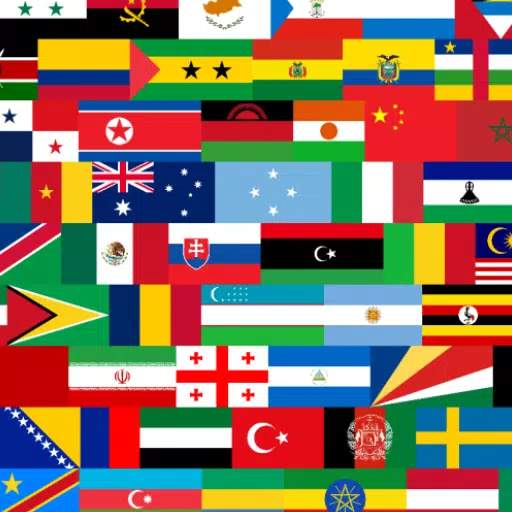 FromSoftware's recent announcement of increased starting salaries for new graduate hires stands in stark contrast to the widespread layoffs sweeping the gaming industry in 2024. This article delves into FromSoftware's decision and the broader context of the industry's current challenges.
FromSoftware's recent announcement of increased starting salaries for new graduate hires stands in stark contrast to the widespread layoffs sweeping the gaming industry in 2024. This article delves into FromSoftware's decision and the broader context of the industry's current challenges.
FromSoftware's Counter-Move to Industry Layoffs
FromSoftware Boosts Starting Salaries by 11.8%
While 2024 has witnessed significant job cuts across the video game sector, FromSoftware, the celebrated creator of Dark Souls and Elden Ring, has taken a different path. The studio has implemented a substantial 11.8% increase in starting salaries for new graduate hires.
Beginning April 2025, new graduates will receive a monthly salary of ¥300,000, up from ¥260,000. In a press release dated October 4, 2024, FromSoftware stated its commitment to fostering a supportive work environment that enables employee growth and contributes to the creation of emotionally resonant and valuable games. This salary increase reflects this commitment.
 In 2022, FromSoftware faced criticism for comparatively lower salaries compared to other Japanese game developers, despite its international success. The previously reported average annual salary of approximately ¥3.41 million (around $24,500) was noted by some employees as insufficient to meet Tokyo's high cost of living.
In 2022, FromSoftware faced criticism for comparatively lower salaries compared to other Japanese game developers, despite its international success. The previously reported average annual salary of approximately ¥3.41 million (around $24,500) was noted by some employees as insufficient to meet Tokyo's high cost of living.
This salary adjustment aligns FromSoftware more closely with industry standards, mirroring the 25% salary increase (from ¥235,000 to ¥300,000) announced by Capcom for the start of their 2025 fiscal year.
Western Layoffs Contrast with Japan's Relative Stability
 The global video game industry experienced unprecedented layoffs in 2024, with major companies shedding thousands of jobs due to restructuring. However, in contrast to the significant job losses in North America and Europe, Japan has largely avoided this trend.
The global video game industry experienced unprecedented layoffs in 2024, with major companies shedding thousands of jobs due to restructuring. However, in contrast to the significant job losses in North America and Europe, Japan has largely avoided this trend.
Over 12,000 game industry employees worldwide lost their jobs in 2024 alone, with companies like Microsoft, Sega of America, and Ubisoft implementing massive cuts despite record profits. This surpasses the 10,500 layoffs in 2023. While Western studios often cite economic uncertainty and mergers as reasons, Japanese companies have adopted a different strategy.
Japan's robust employment landscape is largely attributed to its strict labor laws and established corporate culture. Unlike the "at-will employment" prevalent in the United States, Japan's worker protections and limitations on unfair dismissal create significant barriers to mass layoffs.
 Furthermore, many major Japanese companies, including Sega (33% increase in February 2023), Atlus (15% increase), and Koei Tecmo (23% increase), also increased starting salaries. Nintendo, even amidst lower profits in 2022, implemented a 10% pay raise. These moves may be partly in response to Prime Minister Fumio Kishida's national push for wage increases to combat inflation and improve working conditions.
Furthermore, many major Japanese companies, including Sega (33% increase in February 2023), Atlus (15% increase), and Koei Tecmo (23% increase), also increased starting salaries. Nintendo, even amidst lower profits in 2022, implemented a 10% pay raise. These moves may be partly in response to Prime Minister Fumio Kishida's national push for wage increases to combat inflation and improve working conditions.
However, this doesn't mean the Japanese industry is without its challenges. Reports indicate that many Japanese developers work excessively long hours, often 12-hour days, six days a week. Contract workers, in particular, face vulnerability due to the potential for non-renewal of contracts without formal layoff procedures.
 While 2024 set a concerning record for global video game industry layoffs, Japan's relative stability is noteworthy. The future will reveal whether Japan's approach can continue to protect its workforce amidst increasing global economic pressures.
While 2024 set a concerning record for global video game industry layoffs, Japan's relative stability is noteworthy. The future will reveal whether Japan's approach can continue to protect its workforce amidst increasing global economic pressures.

 Latest Downloads
Latest Downloads
 Downlaod
Downlaod




 Top News
Top News








